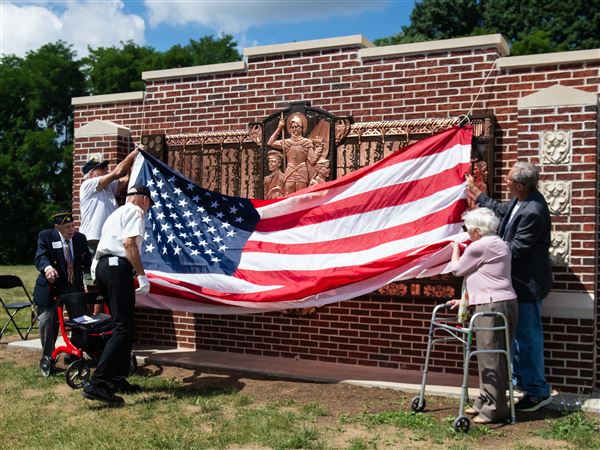Even after four decades, rock enthusiasts remain split into warring camps when it comes to the Beatles' "Sgt. Pepper's Lonely Hearts Club Band."
There are those who insist "Sgt. Pepper," released 40 years ago today in America (although a day earlier in Britain), is the greatest rock album of all time and the band's undisputed masterpiece. Others will concede that, yes, "Sgt. Pepper" is one of the better albums in the Beatles' canon, but it pales in comparison to "Rubber Soul" and "Revolver."
What is indisputable is that "Sgt. Pepper" perfectly articulated the artistic and spiritual mood of its time.
"Sgt. Pepper" was accessible, yet mysterious; symphonic, yet very much a product of that era's pop sensibilities. It sounded spontaneous, but it represented more hours of intensive studio work than any Beatles record up until that point.
Everything from the album photo collage of the band's heroes and influences to John, Paul, George and Ringo's decision to drop their Beatles identity to create a new band persona worked to infuse the project with unexpected wisdom and energy.
"Sgt. Pepper" was, arguably, the first album that the counterculture celebrated like a sacrament. The assumption was that there was more beneath the surface of that record than psychedelic lyrics and exotic beats.
It used to be said that if you wanted to expand your consciousness without resorting to drugs, all you had to do was listen to a cut like "Lucy in the Sky with Diamonds" with the lights off and the headphones cranked to the maximum setting.
The songs were enough to transport the listener to another time and place. The album inaugurated the Summer of Love. More than any other essential record from that year "Sgt. Pepper's Lonely Hearts Club Band" provided the songs by which a generation would define itself for years to come.
There has never been a better song about the universal yearning for a group hug than "With a Little Help From My Friends." It's debatable that John Lennon ever wrote a better song than "A Day in the Life," but none of his contemporaries ever did.
Four decades later, John and George Harrison are no longer with us, so they can't take a bow for their part in creating this enduring musical document.
Meanwhile, Sir Paul McCartney and Ringo Starr continue to carry the legacy of this masterpiece upon their shoulders. Everything they've done since 1967 has been compared, usually unfavorably, to "Sgt. Pepper's Lonely Hearts Club Band." That's OK. Somehow, we suspect they'll always get by with a little help from their fans.
First Published: June 2, 2007, 1:30 a.m.















